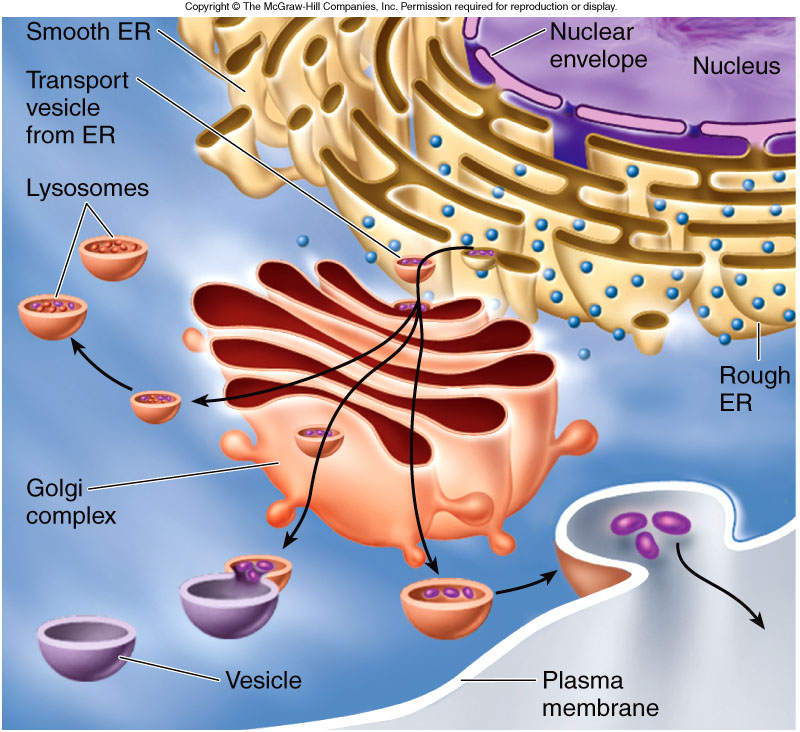Within the Endomembrane System there are many different organelles that have certain responsibilities in the cell. The nuclear envelope is a bi-layer membrane that encompasses the nucleus of cells. The endoplasmic reticulum is the place that proteins are synthesized and transported. Proteins are modified and also transported to other parts of the cell in the golgi apparatus. Lysosomes have a digestive enzyme that allows them to digest macromolecules in the cell. Vesicles are small bits of membranes that are used to transport substances in the cell. Vacuoles are used to store waste products and maintaining the shape of cells. The gatekeeper or plasma membrane of the the cell is used to regulates what enters and exit the cells.
Endomembrane System consists of most of the membranes in the cells and has many different resposibilities in our cells that are imperative to our bodies.

Good.
ReplyDelete